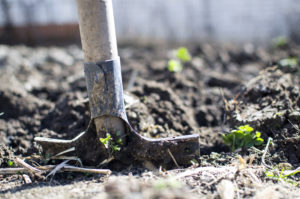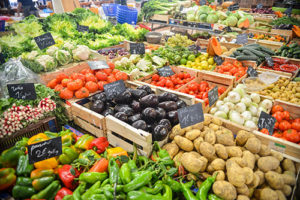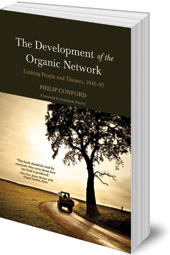Organic Month: What is organic farming?
by Floris Books • 14 September 2017 • Biodynamics, Food and Drink, Gardening • 0 Comments
Dig deeper into Organic Month with this extract from The Development of the Organic Network. Taking a broad view of the organic movement, Philip Conford tries to answer the question: ‘What is organic farming?’.
September is Organic Month. Keep an eye on the Floris blog for more organic recipes and discussions.
‘But wasn’t all farming organic before chemical fertilizers and pesticides were invented?’ This frequently asked question is based on the premise that organic methods of cultivation are merely negative, consisting in the avoidance of synthetic substances. The organic arable farmer Barry Wookey described such a negative definition as ‘simplistic’, though he evidently regarded it as a starting-point for the understanding of what organic farming is. Nevertheless, it is a misconception. The Romans had no chemical fertilizers, but the large-scale estates (latifundia) of their empire, which ignored the rule of return and exhausted the fertility of North African soils, were far from ‘organic’. Other cultures, particularly in the Far East, have provided examples of fertility maintenance which served to inspire the twentieth-century pioneers of the organic movement. This movement arose as a conscious and scientific reaction against the industrial-chemical approach to farming.
It is worth noting that different terms have been used to denote methods of cultivation which seek to observe the rule of return. Invention of the phrase ‘organic farming’ has been attributed to Lord Northbourne, but Northbourne himself was adamant that this was not the case, writing to Ned Halley of the Rodale Press: ‘I was certainly not the first to apply the word “organic’’ to farming or gardening. I have never known the ideas and practices under any other name’.
Other terms which are used as possible synonyms for ‘organic’ include ‘sustainable’, ‘alternative’, ‘traditional’ and ‘ecological’. Nic Lampkin, in his textbook on organic farming, [rejected] the academic pedantry which might devote entire articles to defining the differences between all these terms, concentrating instead on what they have in common. (The one exception will be the biodynamic methods of Rudolf Steiner’s followers, which are part of a distinct esoteric philosophical system.) The term ‘organic’ has been much the most widely used to describe the alternative approach to that imposed by agri-business.
 For Lawrence Woodward of the Elm Farm Research Centre, writing early in the present century, the definition of organic offered by the United States Department of Agricuture (USDA) in the early 1980s remained the most accessible:
For Lawrence Woodward of the Elm Farm Research Centre, writing early in the present century, the definition of organic offered by the United States Department of Agricuture (USDA) in the early 1980s remained the most accessible:
“Organic farming is a production system which avoids or largely excludes the use of synthetically compounded fertilisers, pesticides, growth regulators, and livestock feed additives. To the maximum extent feasible, organic systems rely on crop rotations, crop residues, animal manures, legumes, green manures, off-farm organic wastes, and aspects of biological pest control to maintain soil productivity and tilth, to supply plant nutrients, and to control insects, weeds, and other pests…. The concept of the soil as a living system … that develops … the activities of beneficial organisms … is central to this definition.”
While arguing that there exist significant differences between the main strands of the organic movement, Woodward nevertheless identified ‘an essential core of agreement’ at the heart of it:
— the conception of the farm as a living organism, tending towards a closed system in respect of nutrient flows but responsive and adapted to its environment;
— the understanding of soil fertility in terms of a ‘living soil’, which has the capacity to influence and transmit health through the food chain to plants, animals and humans;
— the idea that these linkages constitute a whole system within which there is a dynamic yet to be understood;
— a commitment to science, and an insistence that whilst the above ideas challenge orthodox scientific thinking, they should be explored, developed, and will eventually be explained through appropriate scientific analysis.
About the book
 Discover more about the history of organic farming in The Development of the Organic Network: Linking People and Themes 1945-1995. In this wide-ranging study, Philip Conford describes the movement’s various organisations, journals and leading personalities, exploring what links them together.
Discover more about the history of organic farming in The Development of the Organic Network: Linking People and Themes 1945-1995. In this wide-ranging study, Philip Conford describes the movement’s various organisations, journals and leading personalities, exploring what links them together.
What do you think about organic farming? Let us know on Facebook or Twitter. Or, find out more about Organic Month here.